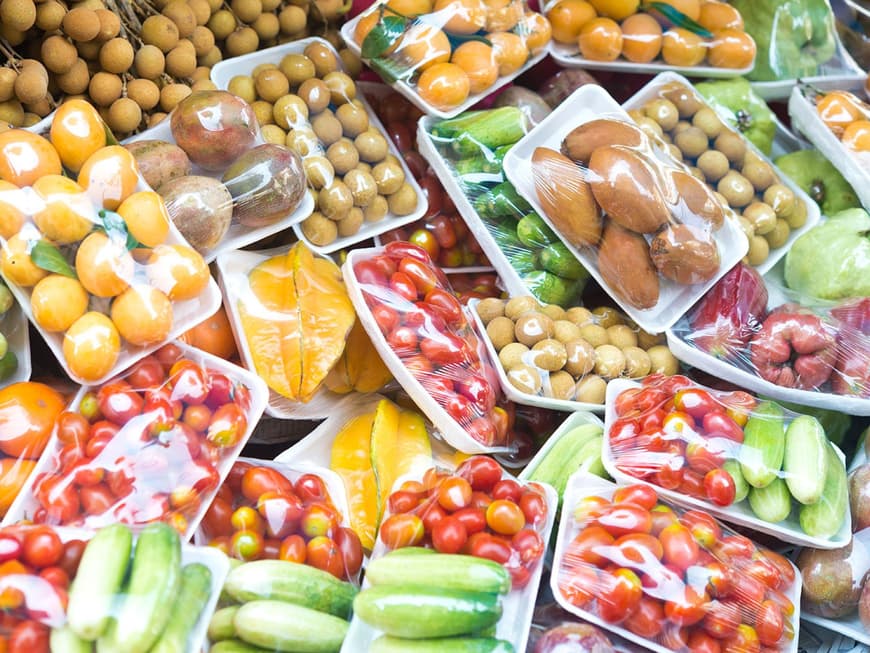
Which products should I choose in the supermarket?
"Always choose reusable bottles for drinks. Buy refill packs, loose fruit and vegetables, fresh produce from the service counter instead of pre-packed products from the chiller cabinet. Also avoid double packaging such as toothpaste that is still in a cardboard box."
Does it help to complain about the packaging?
"Yes, it's actually very important. After all, the industry and retailers argue that customers ultimately buy the products. You can write to the manufacturers or complain in the stores themselves. But you can also set an example by leaving the packaging behind in the supermarket, making the extent of the waste even more visible to the store managers."
Can I bring my own containers for cold cuts?
"There is no law that prohibits retailers from filling customers' cans. However, some retailers fear that they could have problems with hygiene. It's best to ask your local store and not be satisfied with the answer that it's not legally possible. Because that's not true."
How can I reduce waste in the office and on the go?
"Avoid using disposable cups for coffee to go. If you eat lunch in the canteen or bring food from home in Tupperware containers, you won't produce any waste either. Some restaurants and cafés now also offer a reusable deposit system for containers. It's best to simply ask on site."
What other tips are there for the household?
"Separate your waste so that it can be recycled. Swap, rent or borrow products more often instead of buying them. If you drink tap water, which is of very good quality here, you can save on buying plastic bottles. Think about whether this is really necessary before you print out emails or the like. Refill empty packaging. If you like, you can also make your own cleaning products and hygiene products such as soap and shampoo."
Plastic bags - what is the best alternative?
"The best thing is to always think about your own bag or rucksack. There are also very practical, small foldable bags. The aim is to avoid single-use bags altogether, regardless of whether they are made of plastic or paper. Paper bags generally don't have a better environmental footprint than plastic ones."
